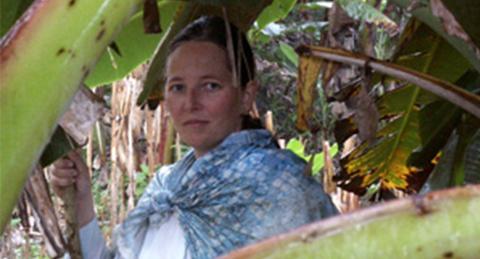
The IA dual major and CIE played a major role in starting me down a career path that has been very fulfilling for me and, I hope, a positive force in our world.
Soon after graduating from UNH, I joined the Peace Corps. That, along with work I did for several nonprofit organizations, eventually led me to start a new nonprofit organization called Sustainable Harvest International (SHI). I started SHI with no money of my own, unsure where I could find any, and working out of a spare room at my parents’ house to help two guys in Honduras work with a dozen families. Now SHI owns a six-room office building, has six North Americans on the staff and employs nearly 30 Central Americans who work with almost 1,000 families.
Though SHI has evolved since its founding in 1997, the basics remain the same. Sustainable Harvest International hires local extension agents in Honduras, Panama, Belize and Nicaragua to provide long-term technical assistance to rural families and community groups that have asked for help implementing sustainable alternatives to slash-and-burn agriculture. We help them plant trees on their farms, on hillsides and around watersheds. In fact, the families working with SHI have planted almost 2 million trees over the past nine years. We also help families grow more of their traditional crops on less land using sustainable techniques and thus eliminating the need to clear more forest every year. The 5,000 acres these families now farm sustainably represent nearly 30,000 acres of tropical forest saved from slash-and-burn destruction. We introduce new crops to improve the families’ diets and income as well. Families whose incomes averaged $500 per year when they start working with us, now earn as much as $4,000 per year! Lastly, we assist with the implementation of a variety of other related projects such as wood-conserving stoves, community loan funds, irrigation systems and growers associations.
Although SHI’s work is focused on Central Americans helping Central Americans, hundreds of North Americans make the work possible by donating their money and volunteering their time. Thousands more support our program participants by doing things such as buying fair trade and organic coffee, chocolate and other products. In so doing, they protect our fragile planet and build good will between our countries.
I have two pieces of advice that I would like to share with current students. Although not original thoughts, I believe strongly in both. The first is to never let the fact that something seems impossible stop you from doing it. The second is that no matter how local your work and the rest of your life may be, don’t forget the impact that your actions in your own hometown can have on the rest of the world and vice versa.